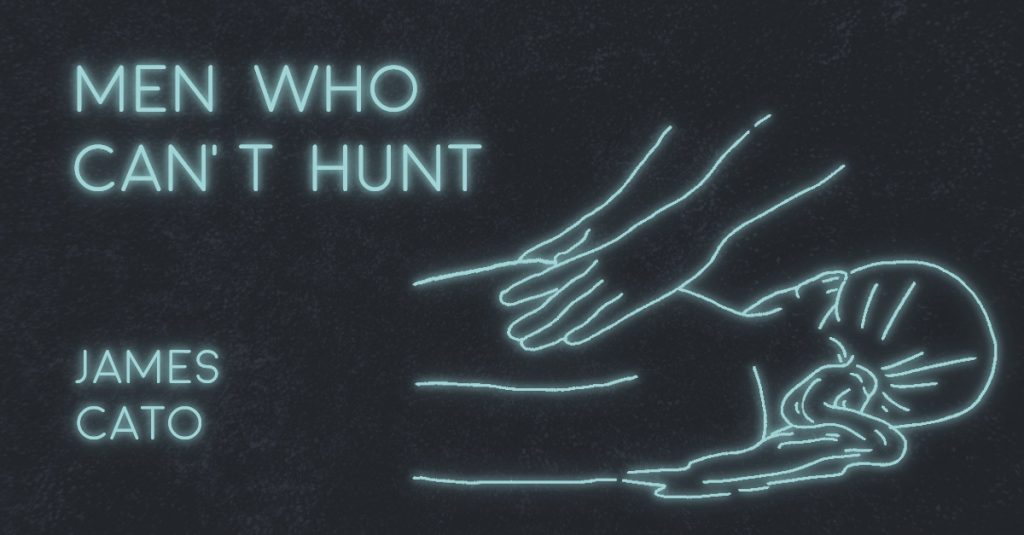Who but Leatra would sashay onto my lopsided porch late for a 6 PM appointment, her pink top with ribbons tied tight across the front. I didn’t correct her when she called me a masseuse but felt the beginnings of dislike before she lay naked with a towel slack at her hips on the table. Resisting the urge to yank her platinum braid, I ran grapeseed oil on her back in a drizzling loop.
Who but Leatra would tighten at the mention of my brother Ely. I told her how this therapy studio had been his bedroom before he vanished, before we slid posters in windshield wipers, before he was no longer considered missing. We had found and buried something. But he was not found. My body moved with my hands over her bony landmarks. The lingering spoor of Ely clung in this room on hot days like today with no AC and damp towels and blackout curtains.
Ely had been hellishly fixed on Leatra back in high school. She’d knocked him flat on his ass—in one long scroller text she stated he could not be with her, ever, he was unfit, too passive, too cockeyed, too short; he should get the notion permanently scrubbed out of his brain. I’ve often wondered if her cruel words helped punt him down his dark path. Even a big sister beer-run failed to console him. I wanted this patient of mine to make amends.
And who but Leatra would change the subject as I cleaved her spine with my hands in blades, her sweating shoulders soft as tomatoes in the oven. She described how she dated Ammon, Benny B, and Lela on and off and sometimes all at once, because, and this went unsaid, Leatra Feridun needed the affection of not one but three of the most attractive people in town. I chewed ice while I rubbed and she complained about its glacial creak against my teeth. I was attracted to her. I understood Ely’s sickness for her unflinching demands.
And she had talent as an open ear. I kneaded her trapezius which puts most patients in a trance yet she listened thoughtfully to my theory about how skin-walkers in the woods had taken Ely when he walked into the trees with dad’s gun, how once he’d disappeared box turtles started bobbling through my yard with smiley faces and stars drawn in mud on their carapaces. Even in pre-colonial times, stories of shapeshifting skin-walkers had haunted these hills and it was crazier to doubt centuries of indigenous accounts than to believe them.
I wondered: what would Ely think of Leatra undressed here in his old bedroom, speculating about his fate? I shared how the graffiti on the wildlife wasn’t the only sign of Ely’s spirit while pulling her shoulders away from each other, believing her honey skin could disguise ill will as well as any deer skull beast screaming for help in the night. Ely’s online profiles also persisted as if linked to his soul. His cell phone gathered dust and voicemails of garbled wind. I even drove by roadkill mutilated, skinned and headless.
“That’s just the men who can’t hunt,” she butted in. “They drive around and steal the antlers and hides and heads and mount them in their garages. Ammon told me. He’s a real hunter; I know because he invites me sometimes to come along and watch. I don’t mind deer or the killing of deer, but I never go.”
Just like Leatra Feridun, I thought, to not mind a thing and also not mind the killing of that thing. But there was excitement in her voice. Because maybe my brother Ely who never hurt an animal in his life really did stroll into the woods with a gun and had his essence eaten. Maybe he’d actually convinced his monster to feast on rumble strip corpses rather than stalking live victims. I noticed skin crumpled under Leatra’s ear, a scar from a bottle thrown by real hunter Ammon, gossip the whole town had heard but tuned out. I liked her more than when she first walked in. It was important to her to believe, even a little, with me.
When she left she took a fistful of mints from the bowl and I waved her croupy truck down the slithering road until it was eaten by trees in the dusk. Her face gave nothing away except a tilt toward the forest. Mosquito larvae flexed in the birdbath as if celebrating with me. I swept a flashlight across the creek-rippling reeds on the edge of the yard. The beam caught the eyes of a standing animal and I held the contact for a few seconds. Then I clicked it off, leaving the night darker than ever.

